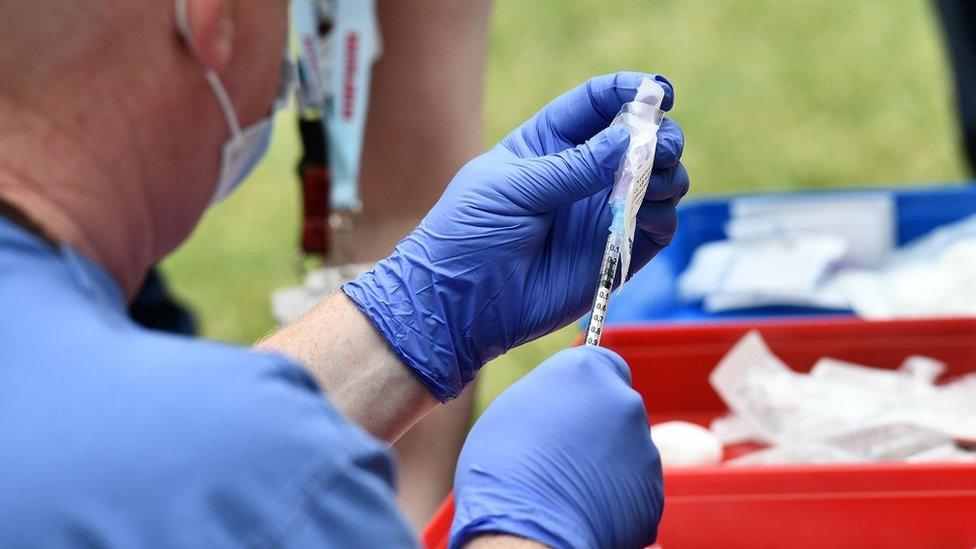Coronavirus: Robin Swann concerned by rise in Covid-19 cases
- Published
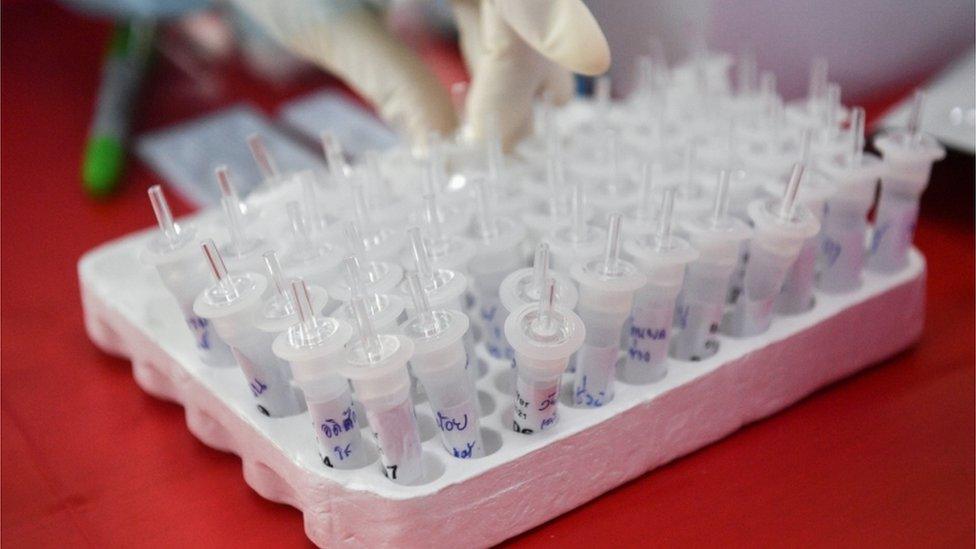
The number of new Covid cases reported in Northern Ireland is "concerning", Health Minister Robin Swann has said.
More than 1,000 new cases of Covid-19 have been reported over the past 24 hours.
It is the highest figure that has been recorded since the peak of cases in January.
But official statistics from the Department of Health show there have been no Covid-related deaths during the same time frame.
There are 80 patients being treated for coronavirus in hospitals and two people are in intensive care.
The highest incidence rate is in the Derry City and Strabane District council area, with 372 positive cases per 100,000.
But there has also been a steep increase in the Belfast City Council area - up from 79 per 100,000 a fortnight ago to 320 per 100,000.
Almost three-quarters of the positive cases across Northern Ireland are in people aged 39 or younger.
Mr Swann said: "We have seen the numbers climb in recent weeks but today's spike in cases is cause for concern.
"We need everyone to play their part in helping to stop the spread of the virus.
"Unfortunately, we are seeing an increase in cases in the younger age group so I would make a particular appeal to this group to get vaccinated.
"Covid-19 has left many with debilitating long-term health issues - don't put yourself at risk, get the vaccine."
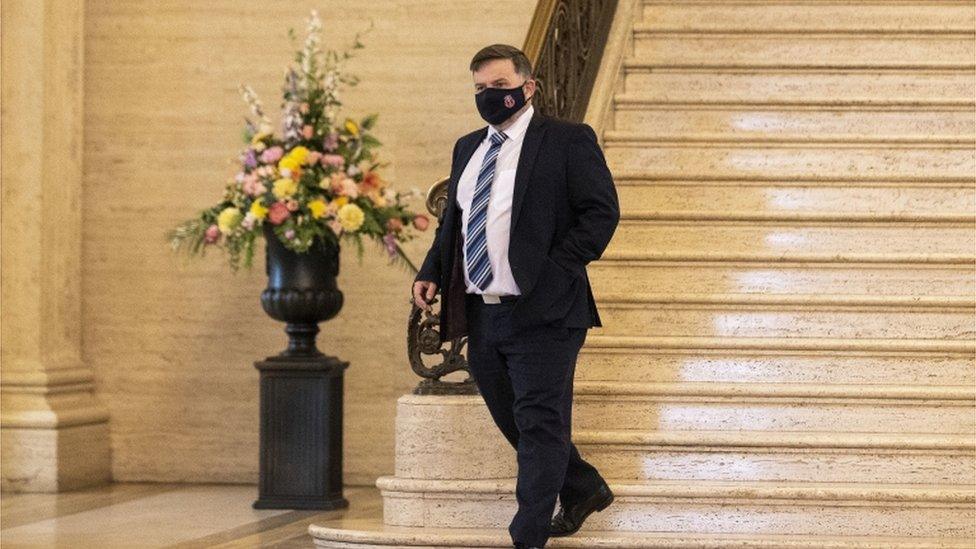
Robin Swann said he was concerned by the rise in positive cases
Dr Brendan Lavery, an emergency department consultant with the Western Health and Social Care Trust, said hospitals could be faced with some difficult choices if the numbers continued to rise.
He told BBC News NI: "It will be very difficult to continue to provide full elective care, especially with the very high incidents that we have at the minute in the Derry and Strabane district.
"We have actually paused visiting in Altnagelvin and Waterside Hospital sites for a short period of time.
"We really have quite a large number of the population that are testing positive with Covid disease in the Derry and Strabane area."
The Western Trust announced on Thursday evening that, from Friday, patients at Altnagelvin and Waterside Hospitals will be allowed one visitor, for a maximum time of one hour, once a week.
The situation will be reviewed on Friday, 23 July.
The latest figures come as hospitals and GPs respond to rising numbers of respiratory illnesses not normally seen at this time of year.
Among the most prevalent are cases of croup and bronchiolitis, especially in children and younger people.
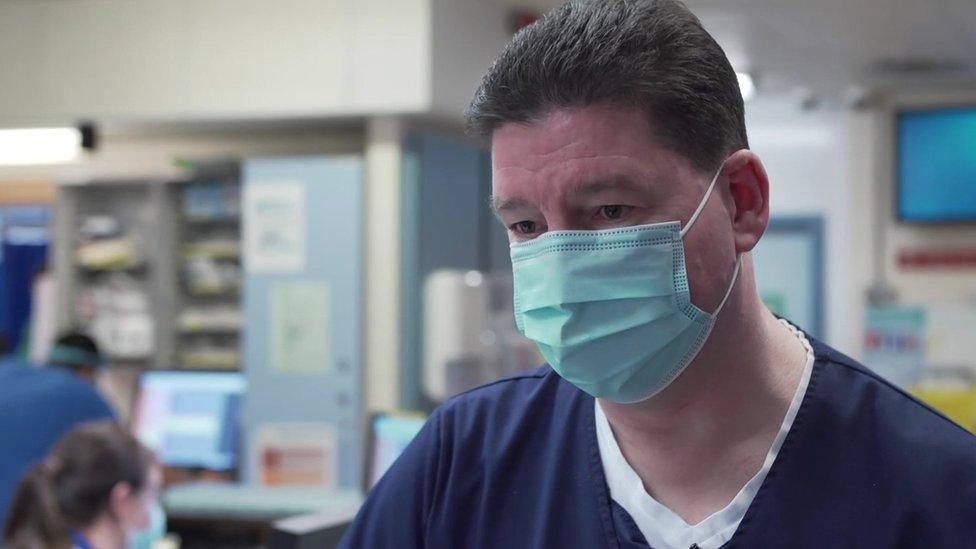
Dr Brendan Lavery said hospitals could face "difficult choices"
A spokeswoman for the South Eastern Trust said: "We are seeing a rise in children's respiratory illness that we wouldn't necessarily expect at this time of year.
"Generally croup does not require admission to hospital and can be successfully managed in ED or at home."


At the moment how we are dealing with the pandemic feels different.
Our behaviour towards it is changing - it's fair to say we are less scared even a little bolder.
During the first and second waves all attempts were made to flatten the curve in advance.
Now it seems that the virus is being allowed to run its course and exhaust itself.
That's partly due to the sheer strength of Delta and the fact it has a life of its own. In fact it makes up three-quarters of cases.
While daily case numbers soar, hospitals figures remain low. That's expected to continue unless another Covid curve ball is thrown.
Vaccines continue to be our ticket out of all this. At the moment however take-up has stalled.
We are likely to be closer to reaching 85% of adults being vaccinated by the end of July instead of the 90% target.
Does that 5% matter? According to experts it does.
Fewer vaccinated increases the risk of more hospital admissions, people developing long covid or even dying.
It also threatens hospitals' ability able to operate at full capacity and to tackle waiting lists.
But it's not all doom and gloom - without a doubt compared to last autumn we are in a very different place.
However if more people got vaccinated we could be in an even better one.

The Belfast Trust said: "The ED at the Royal Victoria Hospital is currently experiencing an increase in attendances associated with the usual winter illnesses.
"This is linked to the fact that children have not been mixing socially and so has resulted in the usual winter illnesses with associated respiratory symptoms and pyrexia occurring during the summer months."
'Big concern'
Meanwhile, Dr Paul Molloy, a GP at a large practice in Londonderry, said: "The big concern coming into the autumn season would be obviously that with people mixing again that not only would there be Covid but there'd be other things, like flu and things like croup and bronchiolitis in kids that we perhaps didn't see as much of last year.
"Obviously everything like flu or Covid puts pressure on the NHS but I think we are well set up to manage any wave that comes along."
Dr Molloy, who also works in Derry's Covid centre, said he was seeing a younger people presenting with Covid symptoms.
"It's inevitable that when we get back together and start mixing again that the other illnesses that are in the community will increase again.
"But the measures of stopping those them are pretty much the same as we were doing for Covid - washing your hands, wearing a mask and being careful."
Medics have urged anyone with flu-like symptoms to stay at home and book a PCR Covid test.
Related topics
- Published15 July 2021
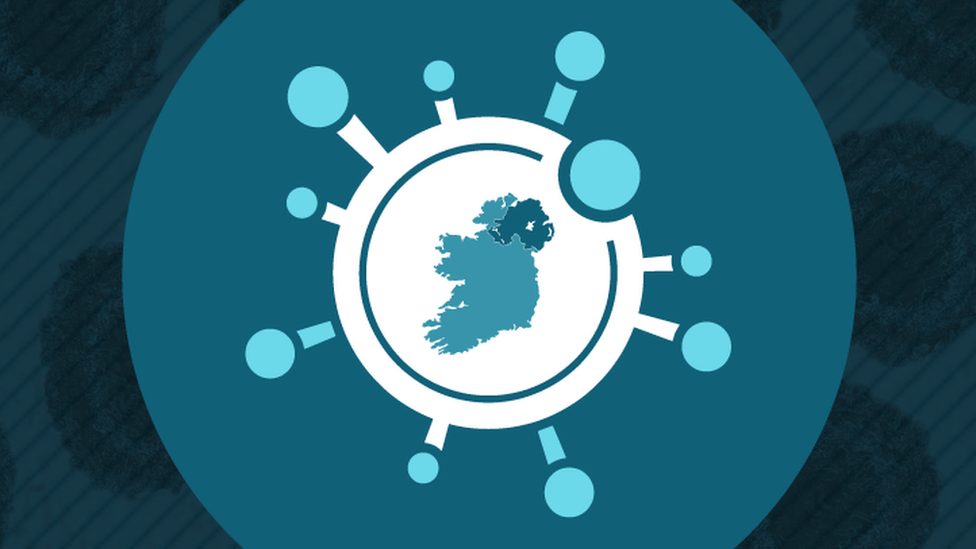
- Published15 July 2021
